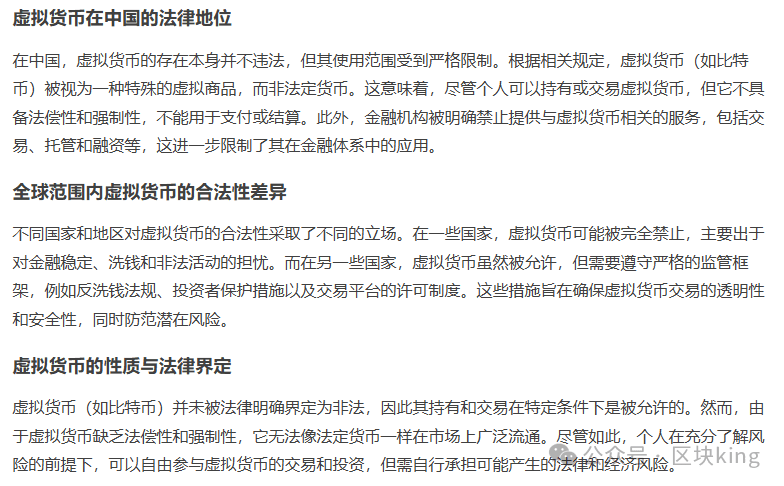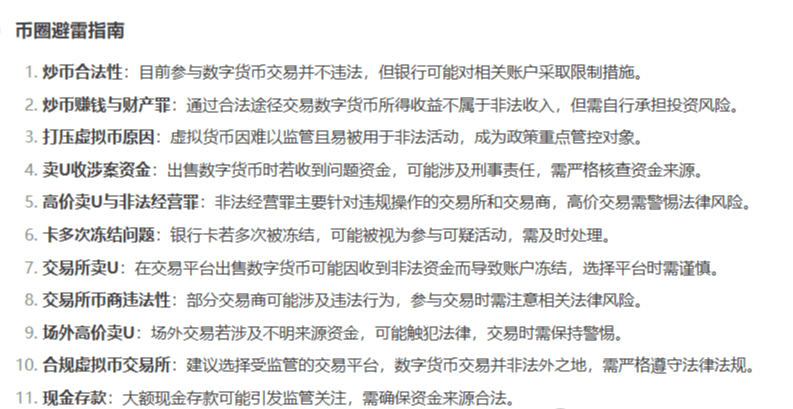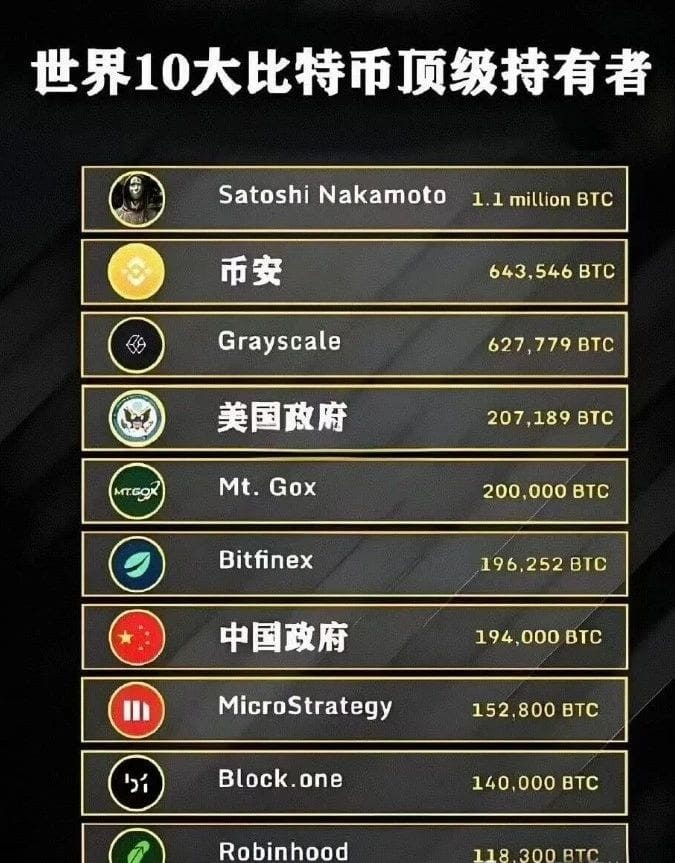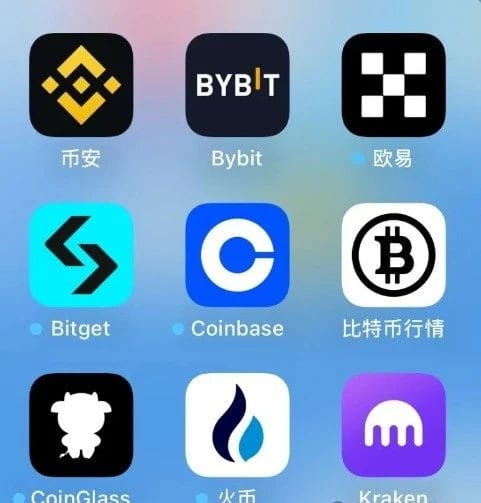The future of cities and the evolution of society
With the rapid development of technology, the future of cities will be filled with infinite possibilities, and society will undergo profound changes. From the changes in consumption and payment methods, we can glimpse: from the initial cash transactions to card payments, and now to QR code and facial recognition payments, each change has greatly improved efficiency and convenience. So, where will future payment methods head? A highly discussed possibility is cryptocurrency, also known as virtual currency.
Legality:


Summary: The current state of global cryptocurrency trading

Buying cryptocurrencies
The following image shows various digital currency trading platforms.

Digital Currency Trading Guide
If digital currency can be compared to stocks, then these trading platforms are equivalent to brokers and exchanges. Since cryptocurrencies are decentralized and not supported by a central server, it is important to note that these apps often require accounts from outside mainland China (it is recommended to use a Hong Kong account) and can be downloaded on both Android and Apple devices.
Question 1: How to buy bitcoins?
Currently, mainland China prohibits cryptocurrency trading and has no banks supporting related businesses. However, Hong Kong allows legal and compliant cryptocurrency trading. Therefore, if users in mainland China want to purchase bitcoins, they must go through trading platforms in Hong Kong or abroad and use Hong Kong or overseas bank cards. It should be noted that cryptocurrency trading is not protected by law in China, and large transactions may be classified as illegal financial activities.
Buying method:
Hong Kong securities account: For example, after opening a Victory Securities account, you can directly use fiat currency to buy and sell mainstream virtual currencies.
OTC (Over-The-Counter): Buying and selling through OTC trading platforms.
Virtual Bank Account: For example, purchasing bitcoins and other cryptocurrencies through ZA Bank in Hong Kong (the method for opening a virtual bank account can refer to relevant guides).
In addition, cryptocurrencies can also be purchased through Hong Kong brokerage firms' cryptocurrency index funds, with a dozen related funds available on the market.
Recommended mainstream cryptocurrency exchanges
Binance: The largest cryptocurrency exchange in the world, offering trading for over 150 cryptocurrencies with a daily trading volume of 80-90 billion USD. Originally headquartered in China, it later moved to Japan and is now located in Malta. The founder is Zhao Changpeng, and the platform token is BNB.
OKX: Headquartered in Seychelles, supporting various cryptocurrency trading.
Coinbase: The largest cryptocurrency exchange in the United States, known for its compliance and security.
Huobi: User-friendly interface, supports a variety of fiat currencies for deposits, and offers a rich variety of trading products.
Kraken: Provides a variety of trading products suitable for professional investors.
Bitfinex: Mainly attracts professional traders and institutional users.
Gemini: A compliant exchange in the United States, focusing on security and regulatory compliance.
Hashkey: A cryptocurrency exchange in Hong Kong, but currently the official website is unstable and has a poor experience.
Common terms in the cryptocurrency circle explained
USDT (Tether): A stablecoin issued by Tether, where 1 USDT ≈ 1 USD, and users can redeem it at any time. To purchase virtual currencies, one usually needs to first buy stablecoins and then exchange them for bitcoins and other cryptocurrencies.
Bitcoin (BTC): The first cryptocurrency in the world, created in January 2009, is referred to in the circle as 'big cake.'
Altcoin: Other cryptocurrencies besides Bitcoin; Ethereum (ETH) is the second largest cryptocurrency by market capitalization, known as 'second cake.'
Web3 Wallet: Similar to a WeChat wallet, used for storing and managing cryptocurrencies.
Contract: Futures trading of virtual currencies.
Gas Fee: Transaction fee paid to miners.
Miner: The unit responsible for blockchain accounting; the decentralized nature of cryptocurrencies relies on the accounting work of miners.
On-chain Transaction: A transaction conducted directly through the blockchain, similar to cash transactions.
Off-chain Transaction: A transaction conducted through exchanges, similar to WeChat transfers.
C2C TradingOne of the ways to withdraw using the platform's U currency.
OTC Trading(Over-The-Counter, refers to trading activities conducted outside of exchanges, where buyers and sellers negotiate and reach a trading agreement. The trading methods include: online platforms, offline stores, and ATMs. When trading at most OTC merchants' offline stores and ATMs, KYC is usually not required, and the trading model is simple: cash is exchanged for virtual currency, and it can be completed in just a few minutes. The downside is that large transactions cannot be conducted.
MSTR: MicroStrategy, a publicly traded company that holds hundreds of thousands of bitcoins; you can consider it a bitcoin concept stock, which is associated with bitcoin and will rise when bitcoin prices increase.
Chain Scanning: Similar to shopping, it refers to searching for newly launched cryptocurrencies that have high future value.
Smart Contract: A contract that can be executed automatically.
Public Key & Private Key: A pair of keys used to protect assets, comparable to your WeChat payment QR code and payment password.
Address: An account address used to send and receive currency, similar to your WeChat account.
Cold Wallet & Hot Wallet: Writing the private key down on paper is a cold wallet. The advantage is that it is not connected to the internet, making it extremely secure; the downside is that it needs to be transferred back to an exchange for trading, which is cumbersome. Storing the private key in cryptocurrency wallets like Coinbase Wallet is a hot wallet, allowing for more convenient trading.
Mnemonic Phrase: Keywords used to recover a wallet.
Faucet: A service that provides a small amount of digital currency for free.
Hash Rate: The processing speed of mining hardware.
Honey Pot Coin: A coin that can only be bought but cannot be sold.When transferring money abroad, it is necessary to avoid suspected money laundering operations to prevent scrutiny and card freezing. The specific methods are as follows:
Ways to transfer money domestically:
If unfortunately faced with a frozen card and wanting to prove that you have not participated in money laundering activities, you can explain it this way:
1. It is a normal personal bitcoin buying and selling transaction, not involving money laundering or other illegal transactions.
2. Cooperate by providing all transaction records, chat records, on-chain transfer records, etc.
3. Be clear that you are engaged in digital asset trading and have not violated the law.In Hong Kong, there are no restrictions on exchanging Hong Kong dollars or US dollars for offshore RMB. Applying for a Hong Kong credit card and pre-depositing offshore RMB for consumption has no limit. Using a Hong Kong UnionPay credit card linked to mainland Alipay and WeChat allows for scanning any QR code for payment (including scenarios where only savings cards are allowed for mainland cards). This means that applying for a payment code can allow you to withdraw the pre-deposited amount from the Hong Kong credit card without any loss.
Exchange money for RMB through China Merchants Yonglong Bank, then withdraw cash from the Bank of China ATM in mainland China, with a limit of 10,000 RMB per transaction and a fee of 25 RMB. The daily withdrawal limit is equivalent to 20,000 HKD, meaning you can withdraw 18,000 RMB daily without using foreign exchange quotas.
Buy USDT and use the U card for transactions, for example, bybit.
Manual transport from Hong Kong to Shenzhen, making several trips.
After placing an order, leave a message to the merchant: Please pay with real name, I will confirm as soon as the payment is received. After payment is received, be sure to check the details to see if the payer matches the order; if it is not a real-name payment, even if the money arrives, it should be refunded without listening to any explanations, such as card overdraft or using a family member's bank card.
The receiving card must not be one that has not been used for a long time and has a zero balance, as suddenly receiving a large amount of money can easily trigger risk control. It is recommended to keep a balance of one or two hundred in each receiving card and bind them to WeChat Pay, rotating the payment with each card when buying things.
Never try small amounts as a test; this is the easiest behavior to trigger risk control! For example, if a bank card is not used normally, you want to first test if it is normal, and whether online banking can be used, by transferring a few cents in and out, confirming that the card is fine before proceeding with large amounts.
Choose methods based on the amount of withdrawal:
A. If the withdrawal is tens of thousands or a hundred thousand, there is no need to split it, nor is it necessary to find Blue Shield.
B. If it's a large withdrawal, like several hundred, and it's urgent, it's best to find Blue Shield. Although the exchange rate is lower, it generally won't cause problems.
C. For large withdrawals that are not urgent, you can rotate the collection of each card, with several tens of thousands, and after a card collects money, do not use it for 2-5 days, then transfer it to the main card. The main card does not directly collect money, and each card collects money every 2-3 days or 5-6 days, with each collection being 50,000 to 100,000. This way, you can withdraw 5 million in a month. Additionally, the amount and duration of each collection per card should not be fixed.
For OTC trading, prioritize large platforms like Binance and OKX.
Try to choose OTC platforms that support T+1/T+2 withdrawal strategies. Although you cannot withdraw immediately after selling coins, it can reduce the risk of suspected money laundering.
Avoid directly using stablecoins like USDT for OTC trading; try to use mainstream coins like BTC and ETH.
The bank cards used for OTC trading must be separate cards that are not frequently used, kept separate from salary cards, so that even if a bank card is frozen, other funds can still be used and it is easier to explain the flow of funds during an investigation.
For OTC trading, try to choose local banks, such as local city commercial banks or rural commercial banks.
Do not frequently trade with fixed merchants.
Look for reliable OTC merchants for trading. Try to actively take on orders from large merchants and market makers to reduce hanging orders.
Reduce the frequency of withdrawals and increase the amount of cashing out.
After OTC trading, do not transfer funds to other bank cards to prevent contaminating other funds; explaining this during an investigation can also be complex. If urgent withdrawal is needed, it can be done through ATM or online consumption.
Choose to withdraw during working hours, such as between 9 AM and 9 PM.
Do not transfer out immediately after receiving funds. After selling USDT for RMB, keep it in the account for a while.

